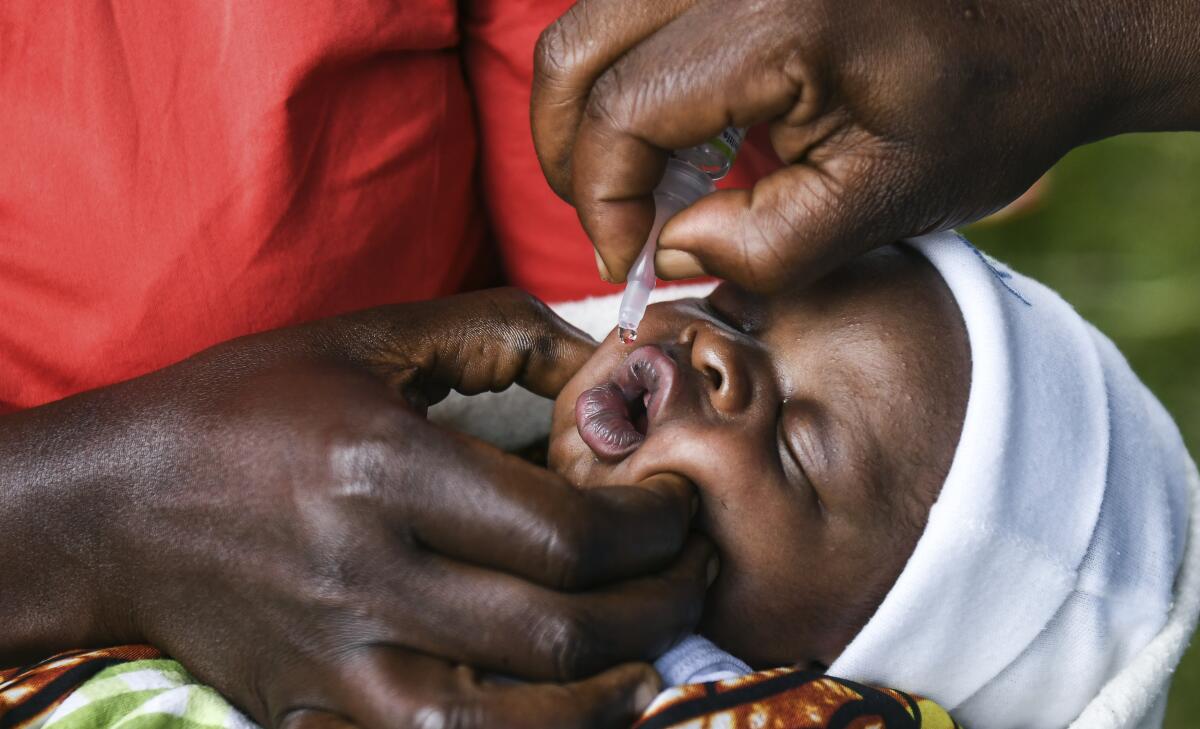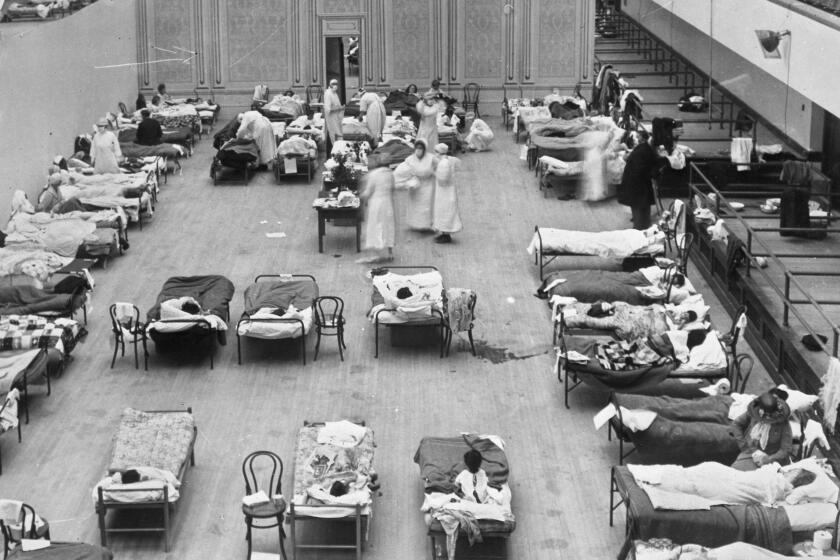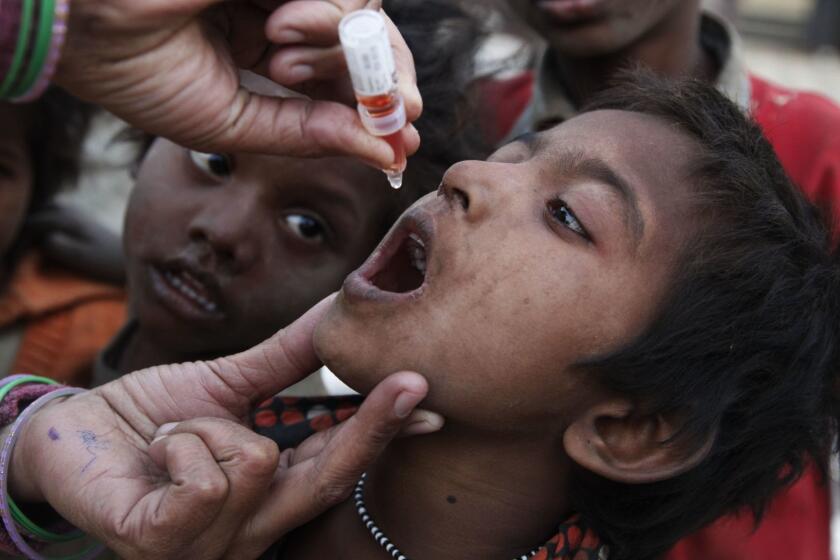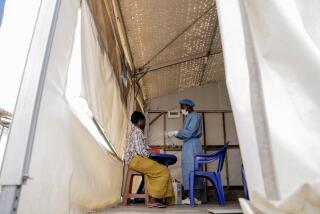9 million children to be vaccinated against polio in Africa

- Share via
CAPE TOWN, South Africa — A drive to vaccinate more than 9 million children against polio launched this week in four countries in southern and eastern Africa, after an outbreak was confirmed in Malawi.
The urgent inoculation campaign has started in Malawi, where drops of the vaccine are being placed in the mouths of children across the country, including in the capital, Lilongwe, and another major city, Blantyre.
The vaccination campaign will be expanded Thursday to include the neighboring countries of Mozambique, Tanzania and Zambia, according to UNICEF, which is working with the governments and other partners.
Three more rounds of vaccinations will follow in the coming months, with a goal of reaching more than 20 million children.
“This is the first case of wild polio detected in Africa for more than five years, and UNICEF is working closely with governments and partners to do everything possible to stop the virus in its tracks,” said Mohamed M. Fall, UNICEF regional director for eastern and southern Africa.
“Polio spreads fast and can kill or cause permanent paralysis,” he added.
Our species lived through the Spanish flu, polio, ebola, SARS, and swine flu. How have humans gotten themselves out of pandemics in the past? And how might we get out of this one?
UNICEF, the World Health Organization and other partners of the Global Polio Eradication Initia- tive are supporting governments with the vaccination drive after it was confirmed in February that a 3-year-old girl was paralyzed by wild polio virus in Lilongwe.
People most commonly contract polio when they drink water contaminated by the feces of someone who carries the virus. Children younger than 5 and those living in areas with poor sanitation are most at risk.
“A regional response is vital, as polio is extremely contagious and can spread easily as people move across borders,” said Fall. “There is no cure for polio, but the vaccine protects children for life. We are working with the World Health Organization and other partners to make sure parents, as well as community and religious leaders, know how important it is that every child receives their vaccine.”
UNICEF has procured more than 36 million doses of polio vaccine for the first two rounds of immunizations of children in Malawi, Mozambique, Tanzania and Zambia.
In 1988, my family traveled from America to India to visit the homeland of my birth.
In Malawi, UNICEF is installing 270 vaccine refrigerators, repairing other refrigerators and distributing 800 remote temperature monitoring devices, vaccine carriers and cold boxes. In partnership with the World Health Organization, UNICEF has trained 13,500 health workers and volunteers, 34 district health promotion officers and 50 faith leaders.
In Mozambique, UNICEF has procured 2,500 vaccine carriers and has delivered 100 cold boxes and is assisting with the swift delivery of vaccines from national to provincial stores. UNICEF is also supporting the training of 33,000 supervisors and health workers on vaccine management and social and behavioral change. Additionally, the organization is training journalists and overseeing the distribution of communication materials and the broadcasting of radio and TV advertisements to support the immunization campaign.
In Tanzania, UNICEF has trained more than 2,000 health workers, 5,128 social mobilizers and 538 community ambassadors and facilitated the procurement of 3,000 vaccine carriers and 360 cold boxes, expected to be delivered in April for use in the upcoming campaigns.
In Zambia, more than 200 trainers are coaching healthcare workers at the provincial and district levels, with support from UNICEF and partners. District officials have been trained on polio surveillance, in partnership with the World Health Organization.
More to Read
Sign up for Essential California
The most important California stories and recommendations in your inbox every morning.
You may occasionally receive promotional content from the Los Angeles Times.












